Time to retire the ‘far right’ slur
Millions of Europeans have not suddenly turned into fascists. We need a new political language.

Want to read spiked ad-free? Become a spiked supporter.
As the EU establishment struggles to make sense of last week’s revolt in the European elections, one thing is clear: our outdated vocabulary is not up to the task of describing today’s political landscape.
Gains for France’s National Rally, Giorgia Meloni’s Brothers of Italy and the Alternative for Germany (AfD) have been described as a ‘far-right surge’ in newspapers and TV reports, not just across Europe but around the world. Even before the election results came in, labels like far right and extreme right were bouncing off commentators’ keyboards. All agree that the far right is on the rise and ordinary people need to worry. This is Europe’s ‘Trump moment’, explained Politico. Some go further. Marine Le Pen’s National Rally is described as ‘neo-fascist’, while academics calmly ask if the AfD is the new Nazi Party. ‘Fascism has arrived’, declared French author Emilia Roig when the election results became clear. Yet with almost a quarter of Europe’s voters having backed a party branded ‘far right’, it is worth asking how accurate this label is and what purpose it now serves.
‘Far right’ reasonably describes the predecessor of France’s National Rally. Established in 1972, the National Front (as it was known until 2018) united several far-right groups under the leadership of Jean-Marie Le Pen, who had a record of Holocaust denial and anti-Semitism. In 2011, his daughter, Marine, took charge and sought to ‘detoxify’ the party. She expelled extremists, including her own father in 2015, after he made comments dismissing the Holocaust. She also denounced fascism and anti-Semitism, before renaming the party. Giorgia Meloni joined the Italian Social Movement, a party founded by supporters of former fascist leader Benito Mussolini, when she was 15. She was, at that point, a known presence in post-fascist circles. In 1994, the Italian Social Movement rebranded itself as the National Alliance. Twenty years later, Meloni became president of its youth wing. Following a party split, she then went on to co-launch the Brothers of Italy, now Italy’s biggest party, in 2012.
Both Meloni and Le Pen have moved their parties in a considerably more mainstream direction. This means that Germany’s AfD, founded in 2013 and second-placed in last week’s EU elections, holds the dubious distinction of being labelled ‘worse than the rest of Europe’s far right’. Given the party’s short history, commentators have had to make do with political scandals in the present. In May, the AfD’s lead candidate in the EU election, Maximilian Krah, told an Italian newspaper that not all members of the Nazis’ elite SS unit were war criminals. In addition, Krah stands accused of having questionable ties to China and Russia.
These three parties do not share a coherent ideology. Indeed, Le Pen has refused to sit with the AfD in the European Parliament following their recent scandals and Meloni has become a key ally of European Commission president Ursula von der Leyen. What they do have in common is that they have successfully tapped into popular concerns with immigration, the burden of Net Zero and a growing sense that political elites are out of touch with the concerns of their nations’ citizens.
While National Rally and Brothers of Italy emerged from an older far-right tradition, they had to change and moderate considerably before becoming electorally viable. Some AfD members have indeed made cryptic comments about Germany’s fascist past. But to describe all these parties as simply ‘far right’ brushes over what makes the current moment politically distinct. Worse, it besmirches the aspirations of millions of voters.
The labels ‘right’ and ‘left’ do not help us understand what drives politics today. In the past, far-right views were firmly associated with anti-Semitism. But in an age of Queers for Palestine, when boycotting Israel is an obsession of the campus left, and when activists throw paint at banks thought to have links to the world’s only Jewish state, it is now perceived as right-wing to defend Israel’s right to exist. Or take Net Zero. Once the left argued for raising the living standards of the working class. Now, the green consensus on the left demands that people are priced out of owning cars, heating their homes and foreign travel. The same inversion has happened in relation to cultural issues. Those who argue for protecting women’s sex-based rights, or a colourblind approach to racial equality, soon find themselves being labelled right wing or even far right. When all popular opposition to the status quo is branded ‘far right’, the phrase no longer carries much meaning.
The ‘far right’ label may not be helpful when it comes to political analysis, but it serves a purpose for the political elite. Far right, extreme right, neo-fascist – all these words act as big red flags. They are a rhetorical warning sign telling voters to keep away. They not only act as an expression of elite distaste for populism. They also hint at the EU’s origin myth – that it is thanks to the wisdom of the technocrats in Brussels that we have avoided returning to the horrors of Nazi Germany and fascist Italy. It frames voting for pro-EU parties as heroic, and supporting Eurosceptics as shameful.
But this is lazy. It avoids the hard work of analysing the causes of voters’ frustrations with mainstream parties and their embrace of the new political right. Crying ‘far right’ reveals less about the parties being branded in this way and more about those sending up the flares. It shows that the EU establishment feels threatened by voters determined to make their voice heard.
There’s another danger with labelling everything establishment figures don’t like as ‘far right’. It might backfire. When the term far right describes today’s popular political causes, the real far-right threat in Europe’s past is relativised. Robbed of its historical meaning, far right becomes just a vacuous slur.
We urgently need a new language to describe the growing anger the public feels towards an increasingly unaccountable political elite, not just in Europe but across the world.
Joanna Williams is a spiked columnist and author of How Woke Won. She is a visiting fellow at MCC Budapest.

Melanie Phillips and Brendan O’Neill – live and in conversation
Wednesday 26 June – 8pm to 9pm BST
This is a free event, exclusively for spiked supporters.
Picture by: Getty.
To enquire about republishing spiked’s content, a right to reply or to request a correction, please contact the managing editor, Viv Regan.

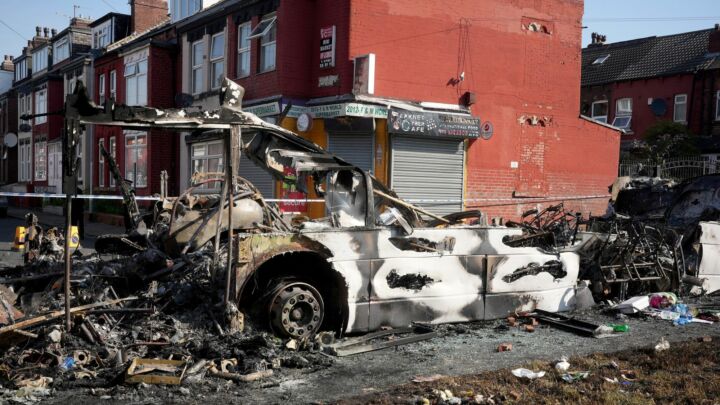
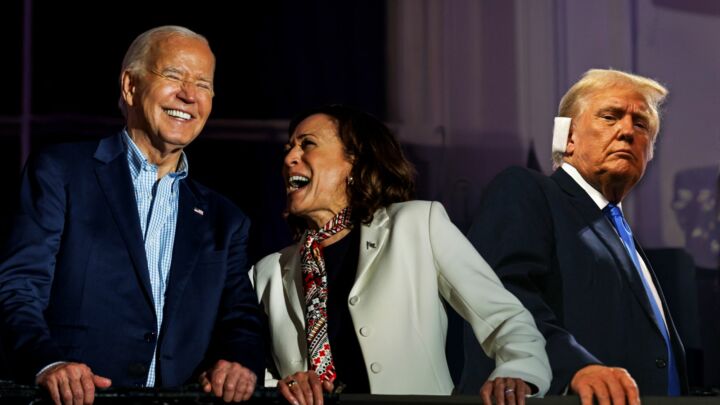
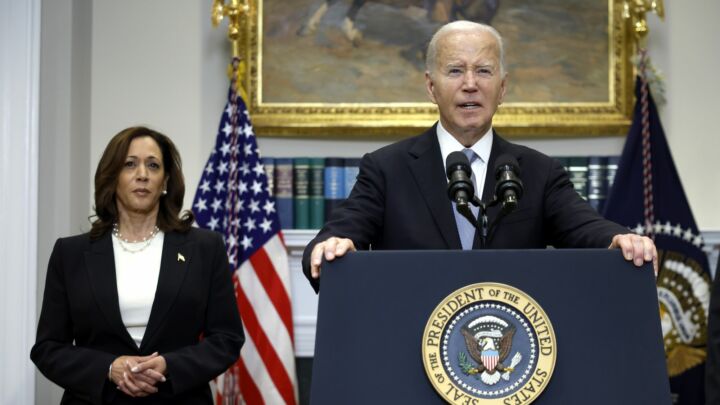
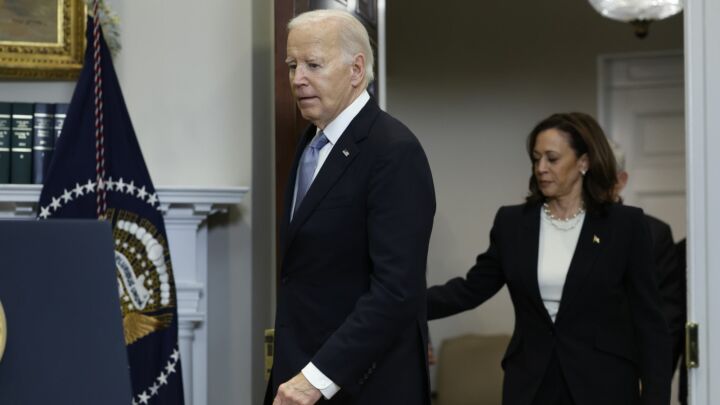
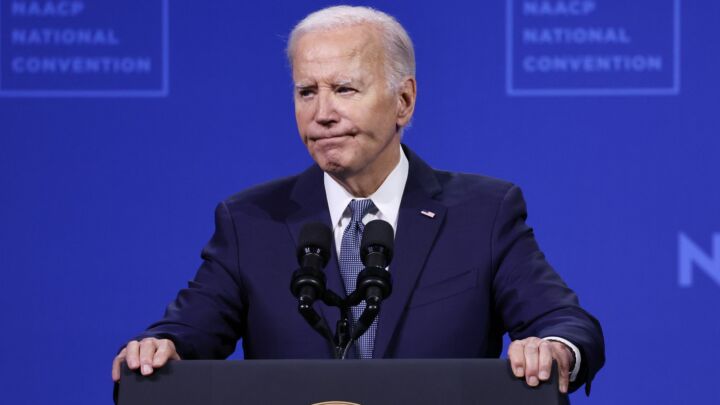


Comments
Want to join the conversation?
Only spiked supporters and patrons, who donate regularly to us, can comment on our articles.